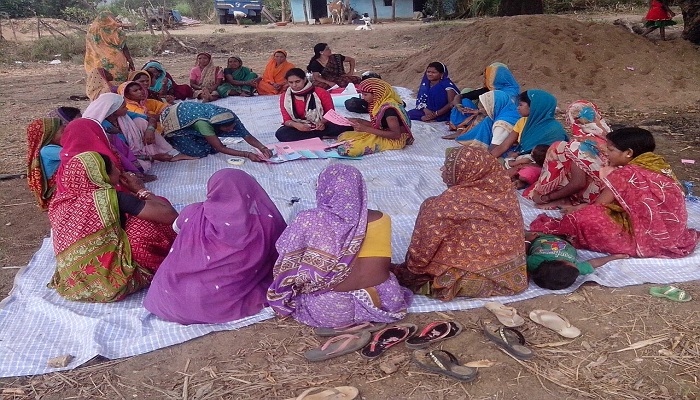
Everyone forgets the simplicity of miracles. We expect flashy and flamboyant. But true miracles come to us in the form of simple things or simple persons who genuinely want to create a difference in the society. This is a task in itself – creating a difference. It was the simplicity of actions that motivated Aakriti Uttam to move to a rural district in Madhya Pradesh and become an initiator of social change.
The district of Betul in M.P. has a rich tribal population, largely dominated by three communities: the Gonds, Korkus, and Yadavs. In this district of over 1.5 million people, are eight Tehsils, covering over 1300 villages.
Armed with patience and determination Aakriti set out to do what she came for: start contributing to growth and development at the grass root level. One of the most remarkable changes that she was a part of was the development of the women’s collectives.
She proudly remembers one such story of Rajni Bai, a 45-year-old daily wage laborer, who lived in the village of Gyraspur. The money that Rajni Bai earned was enough to sustain her, but for years she had been facing abuse from her alcoholic younger brother who would take away her savings. Her brother’s wife was also subjected to similar abuse.
A smart Aakriti nulled Rajni Bai’s problem by setting up a Village Level Committee (VLC) that Aakriti was an integral part of. Now the women of the village are so organised and united, that if Rajni Bai so much as gets into a small quarrel, a group gathers almost instantaneously to her aid.
The simple act of gathering the SHGs of villages has not only helped build a stronger community, it has empowered its women into taking up a stronger position in society. These women have realized that together, they can tackle problems that they wouldn’t have had the courage to face alone.
Self Help Groups (SHGs), which Aakriti helped set up in Betul, encourage mutual support and provide a common space to solve community problems. She recalls how much the villagers could relate to these groups. “It was the feeling of taking out time for themselves, coming out of their homes, keeping aside household work and meeting with SHG members, which motivated them to come for the meetings every week,” she explains.
Another effort, in the form of a gender equality program, encouraged the women of Betul to fight against the gender discrimination they have faced for decades. Instead of sitting at home as they were told to, they actively participated in the Panchayat elections. From carefully selecting candidates, to aggressively campaigning for them, no stone was left unturned. A group of women even kept watch during the nights to ensure that no bribes were made in the villages.
These collectives have given the women of Betul district higher aspirations in life; they are politically motivated, socially aware. They now realize the importance of education and make regular checks at village schools to ensure the presence of teachers, and the quality of mid-day meals.
By organizing meetings for the women of the villages and helping them understand the importance of growing together as a community, Aakriti was able to provide them with the confidence to be strong, opinionated, and active members of their communities, ready to take on new challenges, together.
“Every time the community learnt something new, it seemed like I was learning something new. Their progress and hurdles seemed like my progress and hurdles,” she says, knowing that this experience has helped her grow professionally, as well as personally.

Post Your Comments